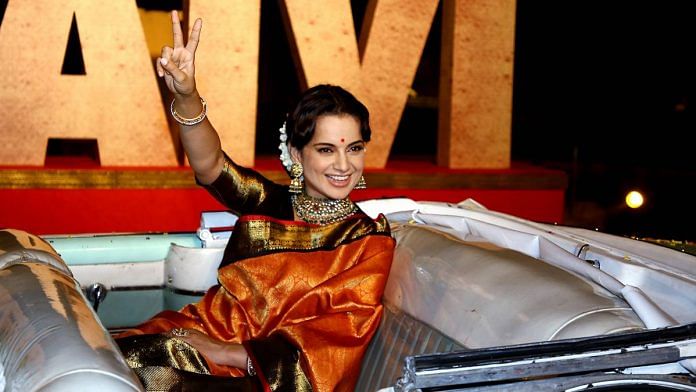Debates and discussions on historical facts and records were back in newsrooms when actress Kangna Ranaut during the Times Now Summit 2021 said ‘Congress was just an extension of British rule’ and ‘India got real freedom in 2014′ and further described 1947 Independence as ‘bheekh’ or alms. But this is not the first time. This happens every time political leaders, celebrities comment on historical places, mighty empires, wars, events or historical figures like kings and invaders. But in this entire process what fails is our history, how we perceive it, and what it actually was.
Being a history student, I can sense growing denialism where historical negationism is gaining ground, where historical records are falsified and new history is written. An endless process of removing and editing is going on, even in our classrooms which are generating historical debates of the superiority of your hero versus mine. Whether it is about changing the syllabus of NCERT and universities, or altering names of the cities and robbing them of their past.
We have borne huge costs of such historical distortions. In literature, consequences of historical negationism have been fictionally depicted in works like 1984. George Orwell writes, “Who controls the past controls the future. Who controls the present controls the past”. Around the world, thousands of historical events ranging from genocides to war crimes have been erased from syllabi, textbooks, and, by extension, from the public memory. But those who were victims of these historical injustices are still lagging behind others while the people who inflicted violence have the privilege to forget it. In India, historians argued that the new look given to Jallianwala Bagh is a distortion of history. They claimed that it’s more of a renovation than restoration, which defeats the whole purpose of the memorial.
The present times are no different. The knowledge that is created today is highly partisan, serving narrow ideological interests. News of RSS-backed schools teaching children about ‘Hindu Ocean’ and ‘Sindhu Sea’ presents a worrying picture. Howard Zinn once said, “They have the guns, we have the poets therefore, we will win.” This defines the kind of knowledge creation we are seeing today.
In India, controversies around personalities like Nathuram Godse, V.D. Savarkar and Jawaharlal Nehru are not new. But what is new is the extent of a certain section trying to alter history. What they don’t understand is that when you say Prime Minister Jawaharlal Nehru’s policies were blunders, you are not just criticising a Congress PM but decades of India as a nation. When we argue that Mughals were nothing more than cruel invaders and their contribution was nothing more than bloodshed of indigenous people, we deny our celebrated ‘Ganga jamuni tehzeeb’. When we glorify Godse’s act of assassination and our history starts favouring assassinators, our claim of subscribing to the ethos of non-violent freedom struggle is falsified.
And when we try to revise our textbooks syllabuses to create a divide, saffronise and communalise history, we tend to create quarreling citizenry and a nation that asks wrong questions and chase exclusivity instead of questioning the government and living peacefully. Deepankar Basu’s research on hate crimes against religious minorities in India reports a 300 per cent increase since the BJP came to power at the Centre.
I suggest that the study of history be pursued with an open mind. When history becomes a matter of faith, creating grounds for politics instead of critical examination, when it starts demanding subordination to the majority instead of empowering individuals by truth and facts, history, historians and the nation fail.
Anu Tiwari is a student at Dayalbagh Educational Institute, Agra. Views are personal.




